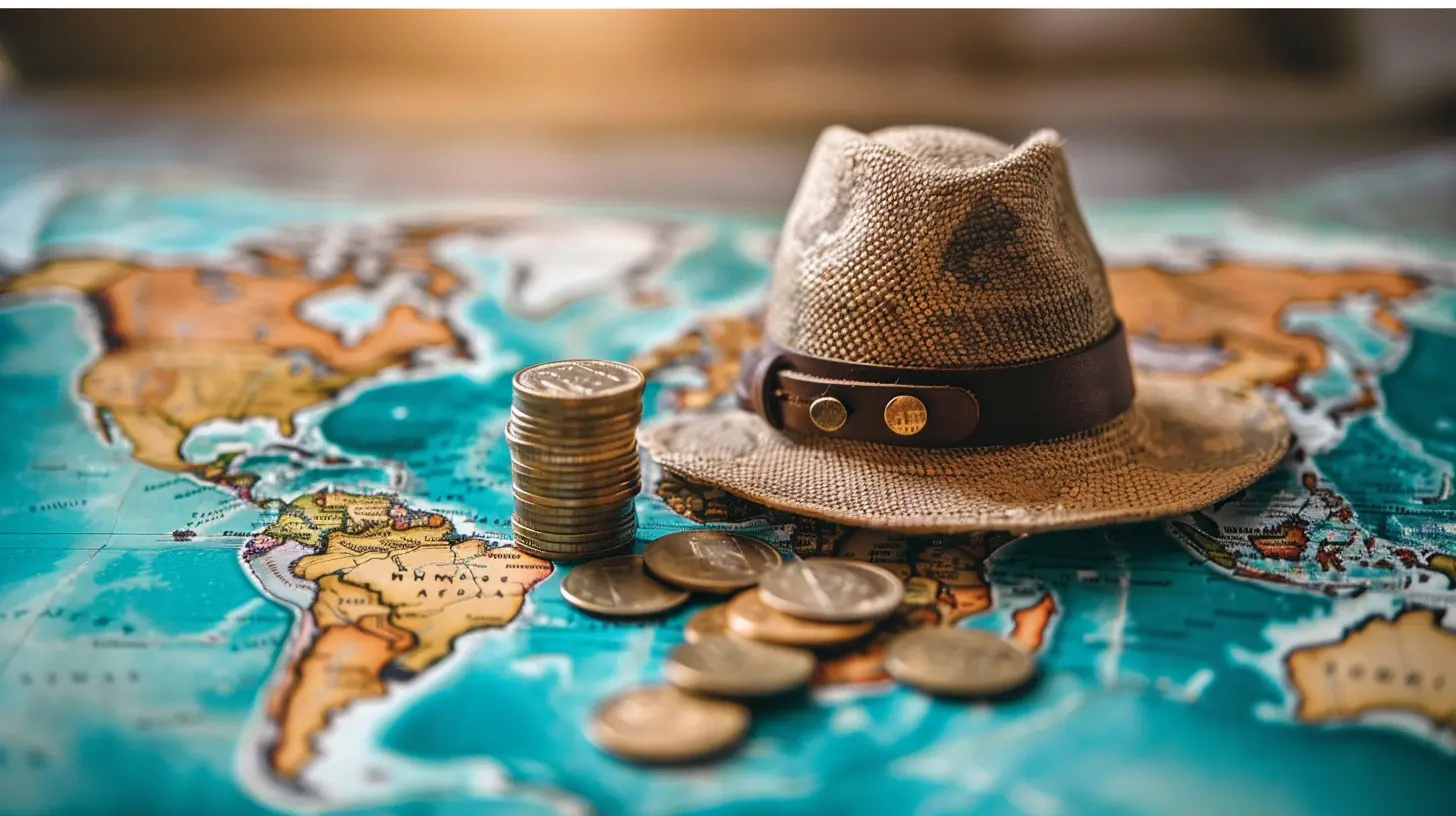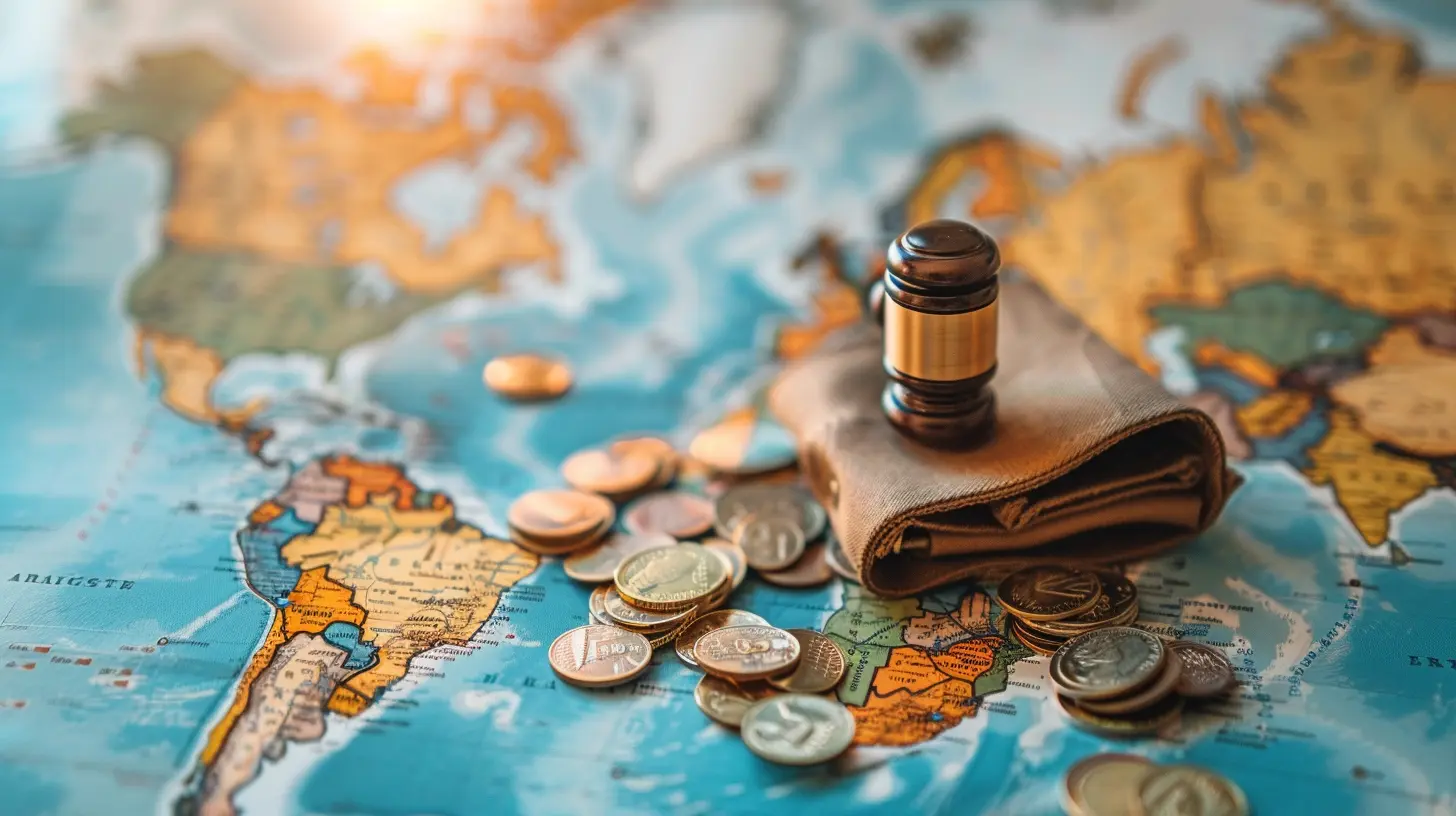How to Manage Unexpected Expenses While on Vacation
19 June 2025
So, you're finally on that dreamy vacation you've been planning for months. Palm trees swaying, suitcase unpacked, cocktails in hand. And then — bam — your phone takes a dive in the hotel pool, or your rental car decides it's had enough of your road trip playlist. Sound familiar? Yeah, unexpected expenses have a sneaky way of crashing the vacation vibe like an uninvited guest.
But don’t panic just yet! While you can’t always predict what will go wrong, you can be ridiculously prepared for it. So grab your travel journal (or just your phone), because I’m about to spill the tea on how to manage unexpected expenses while on vacation like an absolute boss — no stress, no drama.
🎢 The Rollercoaster of Travel Spending
Let’s face it — even the most budget-conscious globetrotters get hit with surprise costs. And no, I’m not talking about splurging on that fifth souvenir mug you definitely didn’t need (we’ve all been there). I’m talking real curveballs: medical emergencies, lost luggage, cancelled flights, or suddenly realizing the currency exchange rate is doing you zero favors.Think of it like a game: travel throws the dice, and you’ve got to play your money hand smartly. Because while spontaneous adventures are fun, spontaneous expenses? Not so much.
💸 Escape the Budget Black Hole: Plan Like a Pro
1. Build a “Just in Case” Fund
Before you even book your flight, start building a financial cushion. This isn’t your daily spending money or your shopping allowance. Nope — this is your emergency stash, honey. A little fund that says, “I’ve got this,” when things go sideways.How much should you save?
A good rule of thumb is at least 15-20% of your total vacation budget. So if your trip costs $3,000, aim to have at least $450-$600 extra tucked away. You can thank me later when your suitcase takes a surprise detour to another country.
2. Use the Right Credit Cards
Let your cards do the heavy lifting (the financially smart kind, not the shopping spree kind). Travel reward cards often come with:- Trip cancellation protection
- Rental car insurance
- Lost luggage reimbursement
- Emergency travel assistance
And let’s not forget those sweet cashback perks. Just make sure you don’t carry a balance longer than your jet lag — those interest rates can be wicked.
🧠 Think Smart, Pack Smarter
3. Travel Insurance: Sexy? No. Necessary? Heck yes.
Listen, nobody wants to talk about travel insurance, but you better believe future-you will be grateful when your Airbnb floods or you need to see a doctor abroad.Policies vary, but look for one that covers:
- Trip interruptions and cancellations
- Medical emergencies
- Lost or stolen gear (hello, fancy camera!)
- Even emergency evacuations (because stuff gets real, sometimes)
It’s like wearing a safety net around your trip. Not glamorous, but wildly useful.
4. Pack the Right Stuff to Avoid Spending Later
Have you ever forgotten basics like charging cords, sunscreen, or a swimsuit — and then had to buy them at triple the price in a gift shop? Yeah, let’s not do that again.Here’s your new travel mantra: “If I forget it, I’ll overpay for it.” Pack smart, and pack completely. That tiny first-aid kit or reusable water bottle might just save you from unnecessary expenses later.
🧳 When Life Throws Lemons on the Beach...
5. Know What to Do When Something Goes Wrong
Here’s the thing: unexpected costs will pop up. But instead of spiraling, take a breath and channel your inner travel ninja. Ask yourself:- Can I use travel insurance to cover this?
- Will my credit card offer any reimbursements?
- Has this happened to others? (Seriously — Google is your BFF.)
- Is this something I can dispute or get refunded for?
Whether it’s a surprise taxi fare or a medical bill, don’t just accept it blindly. Ask questions, document everything, and keep receipts like a squirrel hoarding acorns.
6. Avoid Tourist Traps That Drain Your Wallet
Oh yes, we’re calling out the classic traps: overpriced street vendors, “exclusive” excursions that are anything but, and restaurants with sad food and sky-high bills. Avoid them like you’d avoid someone asking to join your beach towel uninvited.Tip: Ask locals for recommendations, check online reviews, and walk two blocks away from tourist zones. You’ll often find better prices and way better experiences.
📱 Tech That Saves the Day (And Your Bank Account)
7. Apps Are Your Financial Sidekick
Smartphone apps are basically the Avengers of travel budgeting. Here are a few to keep in your pocket:- Trail Wallet or TravelSpend: Track your spending in real-time.
- Splitwise: Perfect if you're traveling with friends and need to divide costs.
- XE Currency: Never get ripped off again by shady conversion rates.
- Google Maps Offline: Avoid data roaming charges when you're lost in paradise.
They won’t carry your bags, but they’ll save your sanity.
🛑 Don’t Panic, Pivot
8. Adjust Your Trip Midway (Yes, It’s Okay!)
You don’t get bonus points for sticking to a plan that’s clearly not working. If you’re hemorrhaging cash on daily boat tours or fancy dinners, pivot. Seriously, just pivot.- Swap some activities for free or low-cost ones
- Cook your own meals if you’ve got a kitchenette
- Choose public transport instead of pricey taxis
- Look for local free events, hikes, or beaches
Flexibility isn’t just for yoga retreats — it’s your financial BFF.
🧾 Keep Receipts & Track Everything
9. Create a Digital Paper Trail
When you travel, it’s easy to lose track of what you’ve spent. All those tapas, train tickets, and museum passes blur together.But when your bank account starts crying, receipts are your evidence. Snap pics of every receipt, or use an app to organize them. Keep tabs on bills and contracts, especially for hotels and rentals. You never know when you'll need to challenge a charge.
🧠 Learn From the Chaos
10. Post-Trip: Do a Financial Autopsy (Not as Morbid as It Sounds)
Once you’re back home, tan lines fading, open up your spending tracker and take a look at what went down. Where did you overspend? What unexpected expenses popped up?This is your golden moment to figure out:
- What to plan for next time
- Which expenses were actually worth it
- Where you need a bigger buffer
Think of it as leveling up for your next adventure.
💥 Power Moves to Keep You Prepared Every Time
Here's your cheat sheet to keeping those surprise expenses under control every time you travel:- Always carry multiple forms of payment (card + cash + digital wallet)
- Make copies of all essential documents (passport, insurance, cards)
- Set transaction alerts on your banking app (so you know the minute something fishy happens)
- Know how to contact your bank in case of emergencies
- Avoid spending like you’re royalty on Day 1 — pace yourself, friend!
🌍 Unexpected Doesn’t Mean Unmanageable
Look, vacations are supposed to be fun, not frantic. And while a perfect trip is a beautiful fantasy, even dream vacations come with their plot twists. So instead of letting a broken phone or missed train derail your whole experience, think of yourself as the cool, calm, collected hero of your story — one who happens to have backup funds and killer insurance.Stay sassy, stay smart, and stay financially fabulous. Your next vacation might just be the most stress-free, budget-friendly adventure yet.
all images in this post were generated using AI tools
Category:
Travel BudgetingAuthor:

Ian Powell
Discussion
rate this article
2 comments
Nala McIlwain
When traveling, it's essential to budget for unexpected expenses. Set aside a contingency fund, ideally 10-20% of your total budget. Use apps to track spending and avoid overspending. Remember to prioritize experiences over material items and keep an eye out for local deals to save money!
June 22, 2025 at 4:39 PM

Ian Powell
Absolutely, a contingency fund is crucial for managing unexpected expenses while traveling. Apps for tracking spending and prioritizing experiences can really enhance the travel experience while keeping costs in check. Great tips!
Dean McGill
Vacation surprises can be stressful, but planning ahead helps. Set aside a flexible budget for unexpected costs, consider travel insurance, and always keep a small emergency fund. Being prepared allows you to enjoy your trip instead of worrying about finances.
June 20, 2025 at 2:15 AM

Ian Powell
Thank you for your insightful comment! Planning ahead and having a flexible budget is key to enjoying a stress-free vacation. Great tips!


